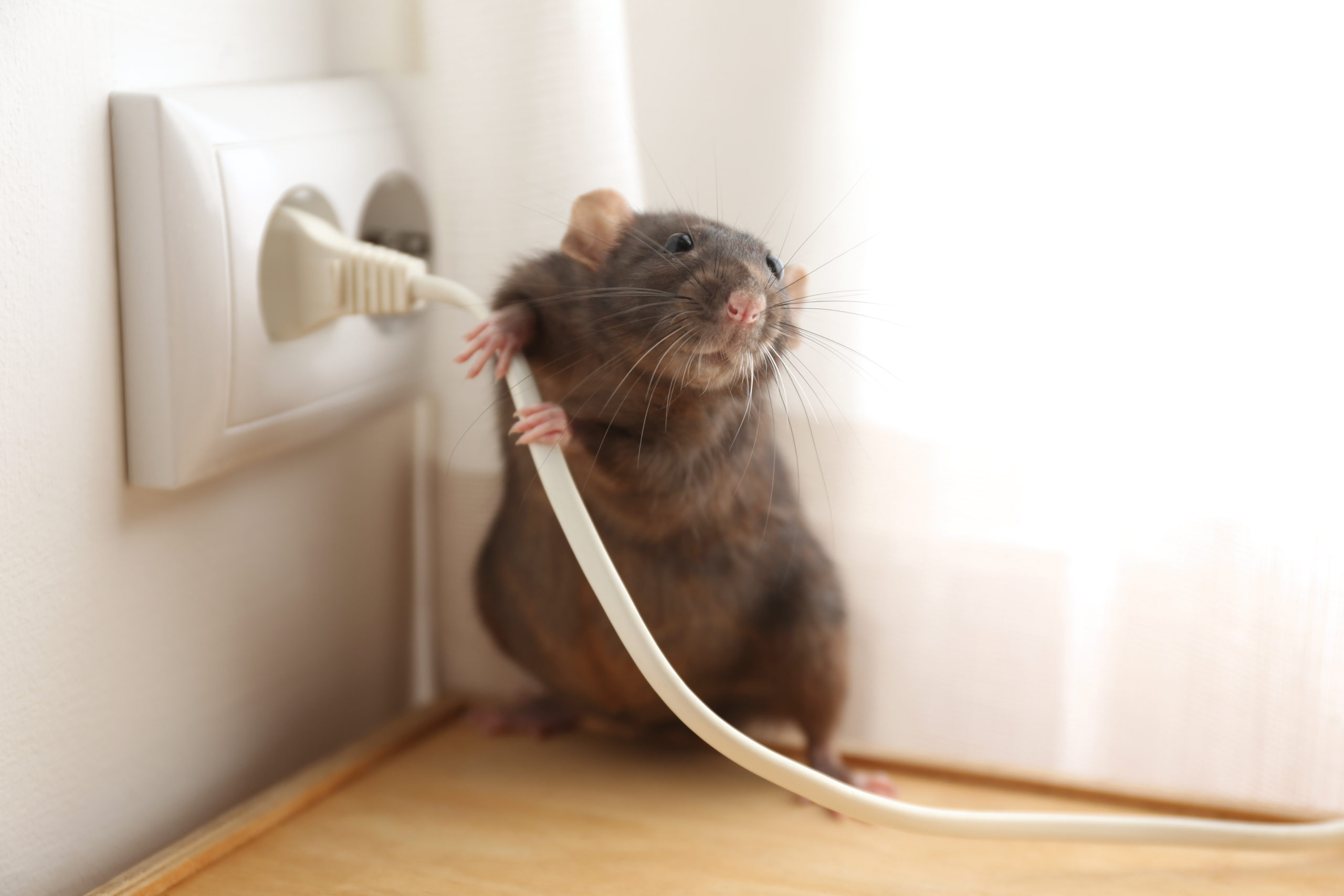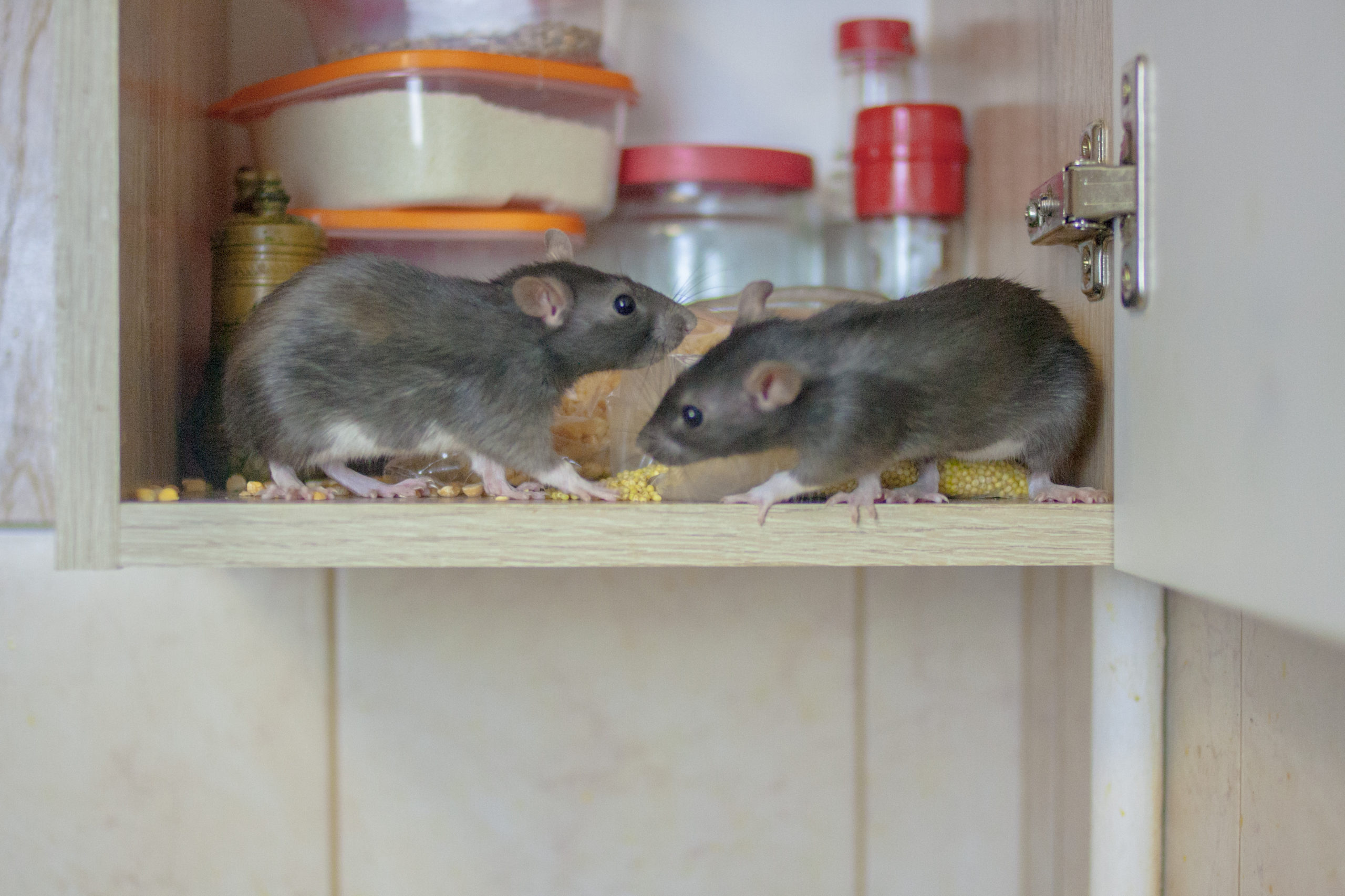Where Do Rats & Mice Go in the Winter?
Where Do Rats & Mice Go in the Winter?
Winter and Pests
While it seems like most pests completely disappear in the frigid winter months unfortunately, this isn’t exactly the case. Just like humans, rodents aren’t particularly keen on frigid weather, so they find different ways to hide away from the cold… including seeking shelter within our own homes.

Hiding, but not Hibernating
Unlike a lot of animals, neither mice nor rats hibernate during the winter months. Rather, they find a nice warm place to hunker down and will build out their nests to make room for offspring in the coming warmer months. When searching for a place to hide and form these nests, rodents will typically target places with a food source in order to make foraging for food easy. In our homes, our kitchens and pantries provide that exact perk without the downside of having to traverse the outdoors. This means that our homes are often the perfect target for rodent winter hideaways.

Winter Rodent Worries
Due to the cold temperatures during this time of year, rodents are more likely to be on the search for additional nesting materials to keep them and their families warm and protected. This means that they will be targeting more areas and items within the home in order to collect the “insulation.” This can lead to the rodents shredding insulation; chewing apart storage boxes; pulling stuffing out of cushions, pillows, other furniture, stuffed animals, and more; tearing through clothing and other cloth items, etc.
In addition to the damage that they can cause throughout the home, rodents can also raid your kitchen and put the health of you and your family at risk. Rodents also have particularly strong jaws, allowing them to get into a variety of packages to access food, spoiling and contaminating everything they touch. Furthermore, they are notorious for carrying diseases throughout homes as they spread excrements everywhere they walk. Some of the dangerous diseases they are known for infecting people with include Hantavirus Pulmonary Syndrome, Hemorrhagic Fever with Renal Syndrome, Lassa Fever, Lymphocytic Chorio-meningitis, and Salmonellosis.

Tips to Avoid Winter Rodent Problems
The first step to avoiding winter rodent problems is by securing your home from potential pest invasions to begin with. Here are a few key steps to prevent rodents from getting inside:
- Seal up cracks and gaps around your home’s exterior
- Replace old or damaged weatherstripping and door sweeps to ensure a good seal
- Do not leave food out (including pet food)
- Maintain a clutter-free yard
- Prevent humid conditions by ensuring sufficient ventilation
- Keep shrubs and trees pruned away from the home
- Keep wood piles, compost, and trash cans away from your home
Along with preventing rodent’s access to your home, it’s important to also remove and secure anything that could potentially be attracting rodents. Rats and mice have an amazing “scent-sitivity” for detecting olfactory stimuli. With such strong sniffers it’s no surprise that rats can be attracted to your home based on a variety of different food smells. Both to prevent these smells from reaching the noses or rodents, and to secure the food from any rodents that currently occupy your home (thereby making your home more inhospitable to them), try following these tips:
- Don’t leave out dirty dishes
- Sweep up crumbs
- Mop the floor regularly
- Immediately clean up any liquid spills and grease splatters
- Ensure garbage can has a sealable top and that it is regularly taken out
- Consistently check for and dispose of spoiled food
- Clean under and behind appliances occasionally
- Ensure all food is properly sealed in airtight containers
- Store food in the fridge and/or freezer whenever possible
- Consistently sanitize all surfaces both in the kitchen and dining room


